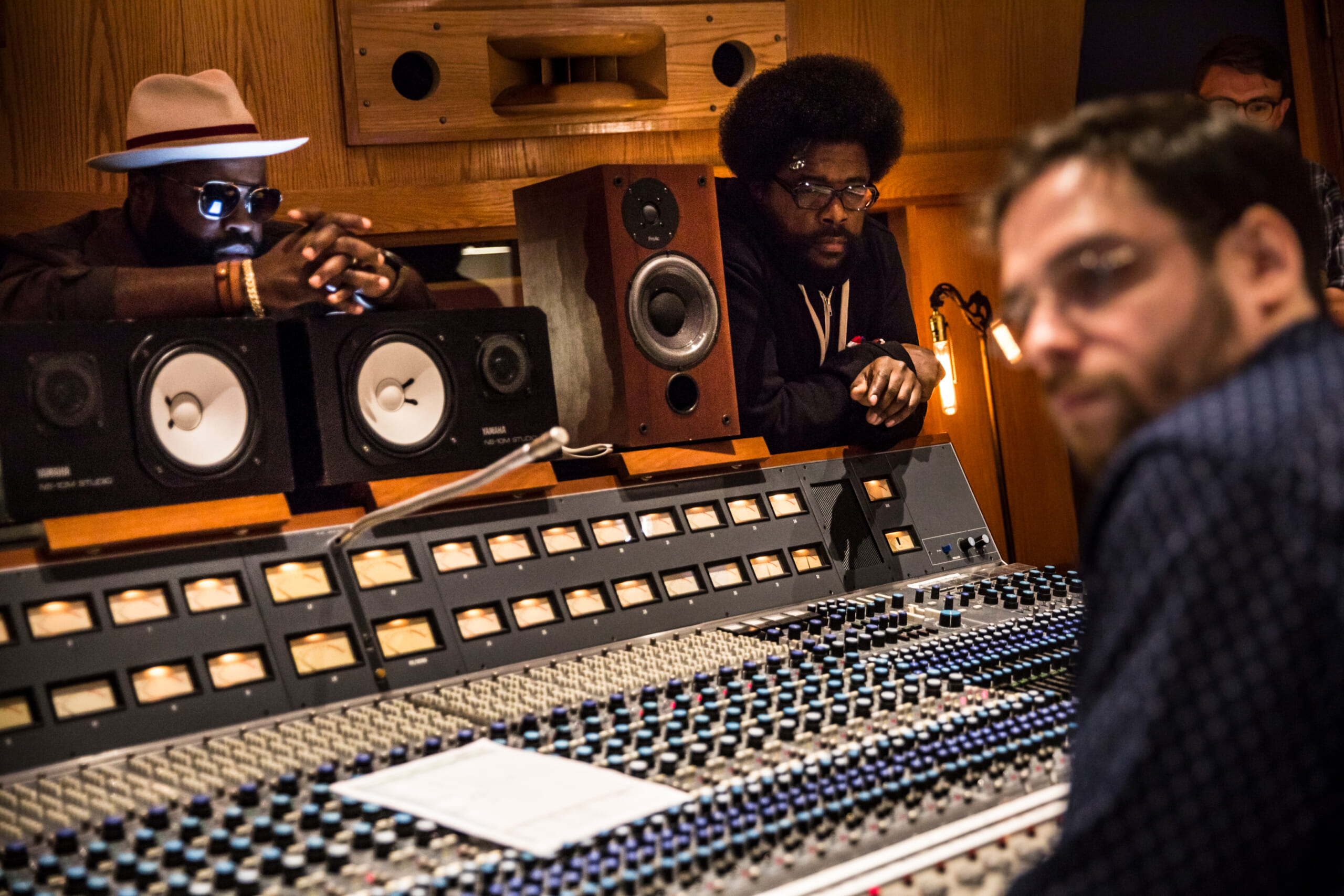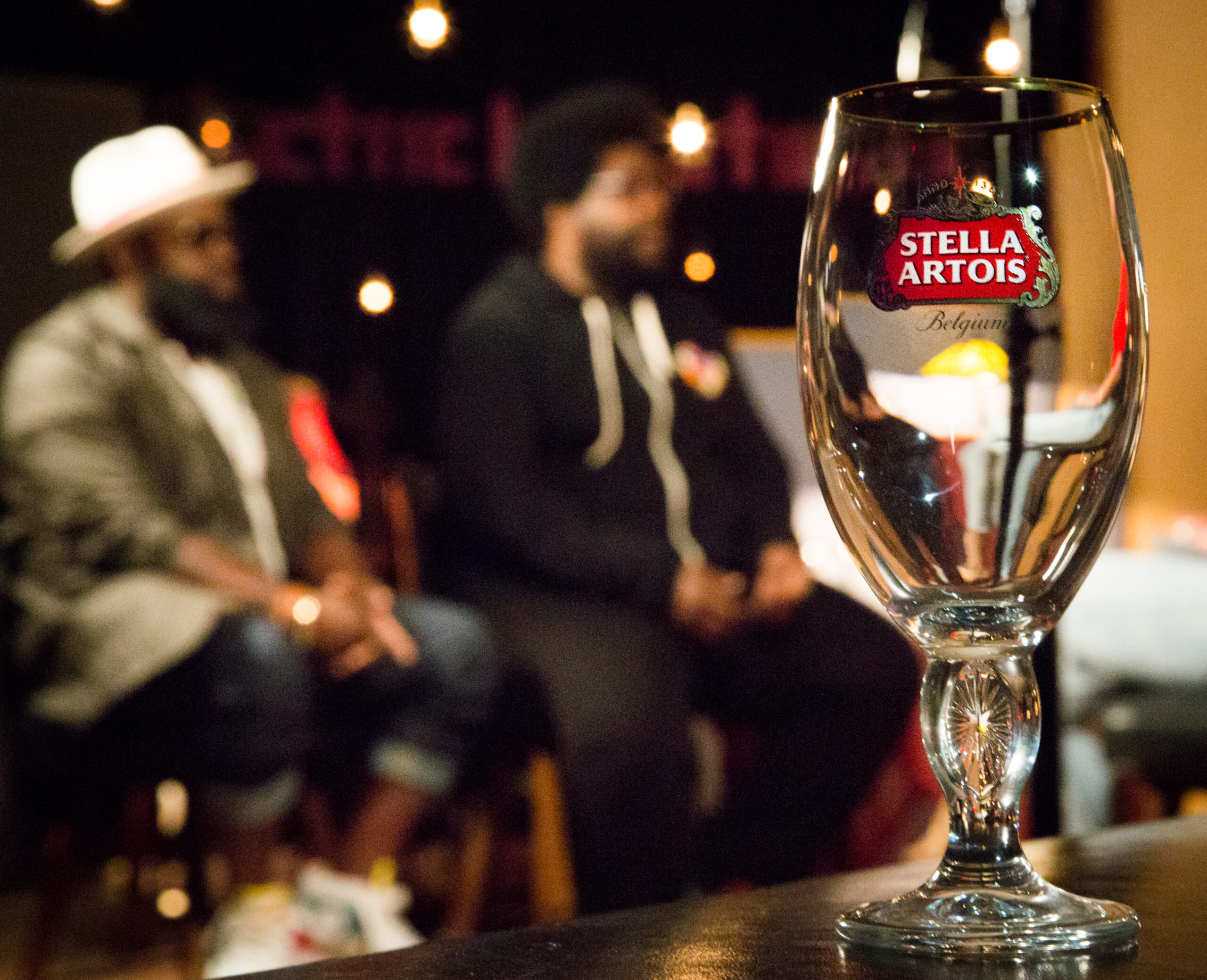The Roots Have Created a One-of-a-Kind Song You Can Actually Taste
Their new track is set to be a perfect compliment to Belgian beer, Stella Artois.

For nearly 30 years now, The Roots have been an album-oriented band. So their latest project, a one-off single and multi-sensory experience, may be a bit of a shock to the group’s longtime fans.
It was in 1987 that Ahmir “Questlove” Thompson and Tariq “Black Thought” Trotter formed the electrically charged hip-hop act, busking on the streets of Philadelphia as high school students. Today, they continue to explore uncharted musical territory with each new release. And while an ongoing 7-year gig as Jimmy Fallon’s house band has brought some routine to the band member’s lives, Questlove attributes their newfound discipline and creative flow to rehearsing more, “as just musicians and as songwriters” than the years they spent together before their nightly gig on national TV.
And, as one of the most versatile, focused, and all-around greatest hip-hop groups of all time, it makes sense for their recent pairing with Stella Artois to develop a song you can taste. Through an array of different pitches, instruments and music styles, they have created the original multi-sensorial song, entitled “Bittersweet.”
Ahead of their debut performance of the song at Stella Artois’ ‘Le Savior’ dining experience, Questlove and Black Thought sat for a chat with Maxim.

Maxim: For this partnership with Stella, how did you even go about approaching making a song that people would be able to taste?
Black Thought: The first step was getting into the studio and collaborating with a scientist, Dr. Charles Spence, who conducted a bunch of different experiments that kind of illustrated the correlation of this instance to us and then in turn, he revealed some notes and some nuances that when incorporated into music, or even standing alone, kind of were able to induce upon the listener or the person who is sharing the experience with you, different dynamics of taste.
QuestLove: Low notes mean certain things, high notes mean certain things. Different frequencies mean certain things. Different patches in chord structures, as well.
Is this something that you guys have thought about trying to bring out through music?
Q: For me personally, it takes an hour or more to really make a point, where someone has the genius to make that point in one song. But for me, I always saw it as a spread out chart of music, of highs and lows and colors, and what I didn’t know at the time when we met them is that our one sense doesn’t act alone. Your hearing affects your sight and how you see colors and how you taste things, and how you touch and smell. So once they explained to us in the technical term that all of our senses are working together, it started to make sense. We knew we weren’t crazy.
https://www.instagram.com/p/71W7Urm5fu
What are you hoping to bring out of guests when they hear your song at Le Savior?
Q: At the end of the day, the song has to be great, no matter what science you put behind it. So, my concern is always with just the basic presentation of how the song is and a lot of people are going to hear it for the first time in a live experience so that’s our field of expertise.
BT: Our hope is that one would just have an appreciation for it, as something really artistic and unique. This is something that’s always kind of been taking place, but it’s never been done in this way. So it’s a once and a lifetime experience.
Can you tell us about your early days as a musician and what inspired you?
Q: For me, I guess my family. I come from a family of musicians, so I was kind of born on the road and kind of grew into the family environment of touring and doing a lot of shows. I was born into it, so I had no other choice.
BT: I was also born into it. My evolution was at the same time as hip-hop was very young and coming into its formative stage. I was out in Philadelphia and immersed in all elements of the young hip-hop culture. Graffiti and visual art, which eventually took me to art school, where this band began. But I tried my hand at everything. At DJing, and being a dancer, and human beatbox, and just everything. But, the lyricism is what I most excelled at.

Over the course of so many studio albums, what would you say defines The Roots’ career?
Q: I think we’re consistent with being not inconsistent, but I’ll say that every other album is a whole other left turn, and another journey. Pretty much in the last 20-plus years of 15/16 records, we’ve done neo-soul, free jazz, straight ahead, R&B, rock stuff, experimental, everything under the sun. I think in the beginning, it just depended on — because we toured so much and did like 200-plus dates a year — in my head when it was like, “Okay, time to create a new record. I want to do the exact opposite of what we’ve been promoting for the last two years.”
BT: We want everything to be a departure.
